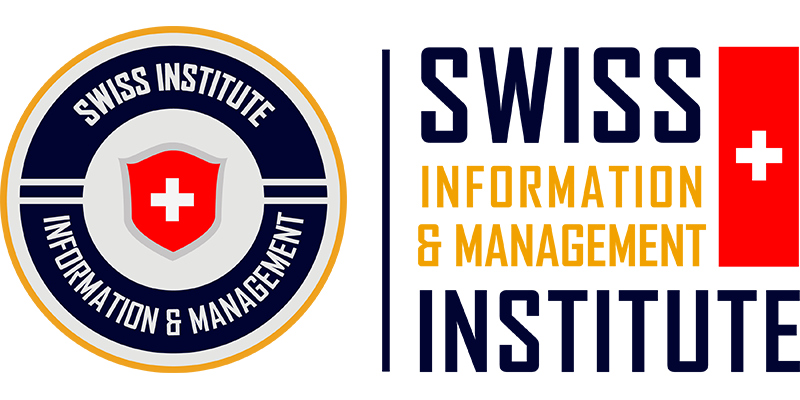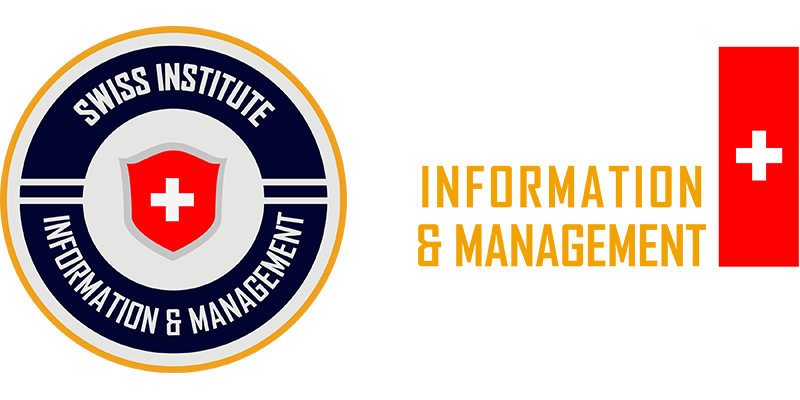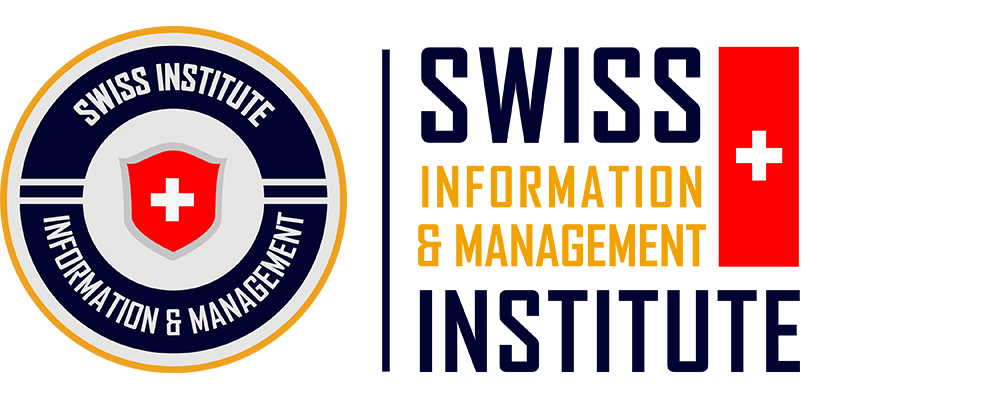Master of Business Administration in Human Resource Management
Online learning combined with study abroad at the Asia campus.
The Master of Business Administration in Human Resource Management (MBA in HRM) program, in collaboration with Asia Metropolitan University (AMU), is a specialized program tailored for professionals aiming to deepen their expertise in managing people and driving organizational development. The program emphasizes strategic human resource management, leadership, talent development, and performance optimization, preparing learners to become influential HR leaders in today’s dynamic and global workforce.
Designed for working professionals, SIMI provides an academic support system to ensure students are well-prepared for success. Students also benefit from the Swiss Colloquium and various networking opportunities to expand their professional and social connections.
Along with globally recognized qualification, the SIMI Swiss Master program understands what students need:
- Fully Accredited & Recognized
- The MBA program at AMU has been listed by Trusted Malaysia as one of the best programs in Malaysia.
- Receive a qualification from Asia Metropolitan University – a qualification with international recognition
- The learning mode combines Live Class with study abroad and networking activity at AMU’s Campus
- Academic Support While Studying
- Expand your business network
- Study the original AMU program
- Tuition fee support & Investment Efficiency
Qualifications within an MBA Program:
- MBA in Human Resource Management from Asia Metropolitan University
- Optional: Master of Arts in Human Resource Management and Talent Development from Swiss Information and Management Institute (Awarded upon SIMI’s recognition of results from AMU through the APEL.Q process)
Fully Accredited & Recognized
Asia Metropolitan University is recognized by the Ministry of Higher Education (DU054(J)), and the program is nationally accredited by the Malaysian Qualifications Agency (MQA/FA4567).
Flexible Learning Model
This program combines online learning with study abroad at the Malaysia campus, offering students flexible education alongside valuable international experience.
Subsidized Tuition Fees
The program is subsidized, making the tuition significantly more affordable compared to the original programs in Asia.
Academic Support System
The academic support system helps students overcome challenges so they can focus solely on excelling in their studies.
Courses & Learning Outcomes
Semester 1
1. Organizational Behaviour (PMBA6013)
Overview
- Individual and Group Behaviour: Explore how personal values, perception, and motivation influence behavior in the workplace.
- Organizational Culture and Structure: Understand how culture and organizational design shape communication and performance.
- Leadership and Team Dynamics: Analyze various leadership styles and their impact on team collaboration and effectiveness.
- Change Management and Conflict Resolution: Learn how to manage organizational change and resolve conflicts constructively.
Unit Aims
- Understanding Human Behaviour in Organizations: Gain insights into how individuals and groups interact within a professional setting.
- Enhancing Organizational Effectiveness: Develop strategies to foster positive work environments and improve productivity.
- Applying Behavioural Insights: Utilize behavioral knowledge to solve workplace challenges and drive performance.
2. Marketing Management (PMBA6033)
Overview
- Market Analysis and Consumer Behavior: Understand market dynamics and consumer decision-making processes.
- Marketing Strategy Development: Learn to design effective marketing plans aligned with business objectives.
- Branding and Product Positioning: Explore techniques for building strong brands and positioning products competitively.
- Digital and Global Marketing: Examine online marketing tools and international marketing strategies.
Unit Aims
- Understanding Core Marketing Concepts: Master the principles of marketing and their application in diverse business contexts.
- Strategic Marketing Planning: Learn to analyze market opportunities and formulate competitive strategies.
- Driving Customer-Centric Growth: Apply marketing insights to enhance customer satisfaction and business growth.
3. Managerial Economics (PMBA6063)
Overview
- Microeconomic and Macroeconomic Principles: Study the foundational economic theories that influence managerial decisions.
- Demand and Supply Analysis: Analyze market forces and predict outcomes using economic models.
- Cost and Production Economics: Understand cost structures and production efficiency to improve profitability.
- Market Structures and Pricing Strategies: Evaluate different market environments and formulate pricing policies.
Unit Aims
- Economic Thinking for Managers: Equip learners with tools to interpret economic data and trends for business decisions.
- Decision-Making under Uncertainty: Apply economic models to address real-world business challenges.
- Optimizing Business Performance: Use economic analysis to drive resource allocation and operational efficiency.
4. Strategic Human Resource Management (PMHR6001)
Overview
- HR Planning and Talent Management: Learn how to align HR strategies with long-term business goals.
- Performance and Reward Systems: Understand systems that enhance employee performance and motivation.
- Employee Engagement and Development: Examine practices that promote a high-performance culture and continuous learning.
- HR's Role in Strategic Change: Explore how HR contributes to managing change and fostering innovation.
Unit Aims
- Strategic Alignment of HR Practices: Understand how HR supports the strategic direction of an organization.
- Developing a Competitive Workforce: Equip learners with tools to build and retain talent in dynamic environments.
- Enhancing Organizational Capability: Apply SHRM frameworks to improve agility and sustainable growth.
Semester 2
1. Research Methodology (PMBA6683)
Overview
- Research Philosophy and Approaches: Understand the foundations of research including positivism, interpretivism, and pragmatism.
- Research Design and Strategy: Learn how to structure research using qualitative, quantitative, or mixed methods.
- Data Collection and Analysis: Explore techniques for gathering, analyzing, and interpreting primary and secondary data.
- Ethical Considerations in Research: Identify and address ethical issues to ensure academic and professional integrity.
Unit Aims
- Developing Research Skills: Build capabilities to plan and conduct independent, rigorous academic or business research.
- Applying Methodological Frameworks: Use appropriate methodologies to investigate complex problems.
- Enhancing Critical Thinking: Strengthen analytical skills to assess literature, data, and research findings.
2. Strategic Management (PMBA6083)
Overview
- Strategic Analysis Tools: Learn to apply models such as SWOT, PESTEL, Porter’s Five Forces, and Value Chain.
- Strategy Formulation: Understand how to craft long-term strategic plans to gain competitive advantage.
- Strategy Implementation and Control: Study how strategies are executed and monitored in real business environments.
- Innovation and Strategic Change: Explore how to lead and manage change within dynamic business environments.
Unit Aims
- Understanding Strategic Thinking: Gain insights into strategic decision-making at the organizational level.
- Building Competitive Advantage: Apply strategic tools to improve organizational performance and positioning.
- Adapting to Market Change: Develop flexible strategies to navigate uncertainty and change.
3. Human Resource Development (PMHR6002)
Overview
- Learning and Development Strategies: Understand approaches to improving employee skills and organizational learning.
- Training Needs Analysis: Learn how to assess, design, and evaluate training programs.
- Career Development and Succession Planning: Explore methods to retain talent and prepare future leaders.
- Coaching, Mentoring, and Performance Support: Examine support systems that enhance individual and team growth.
Unit Aims
- Enhancing Workforce Capabilities: Build knowledge to align HRD initiatives with strategic goals.
- Fostering Lifelong Learning: Promote continuous development in evolving work environments.
- Driving Organizational Growth: Use HRD as a lever for transformation and sustainable success.
4. Operations Management (PMBA6093)
Overview
- Operations and Process Design: Learn how to design and optimize business processes for efficiency and quality.
- Supply Chain and Logistics: Understand how goods and services are delivered effectively through the value chain.
- Quality and Performance Management: Explore tools like TQM, Lean, and Six Sigma to enhance productivity.
- Technology and Innovation in Operations: Examine how digital tools and automation transform operations.
Unit Aims
- Improving Operational Efficiency: Gain skills to streamline operations and reduce waste.
- Strategic Role of Operations: Understand how operations contribute to long-term business success.
- Integrating Technology and Systems: Apply innovative solutions to optimize processes and performance.
Semester 3
1. Compensation and Benefits Management (PMHR6004)
Overview
- Compensation Strategy and Structures: Understand how organizations develop and implement effective compensation systems.
- Job Evaluation and Pay Equity: Explore job evaluation techniques and ensure fairness through internal and external equity.
- Incentive and Variable Pay Plans: Learn about performance-based compensation, bonuses, and commission structures.
- Employee Benefits and Legal Compliance: Examine statutory and voluntary benefits while ensuring legal adherence.
Unit Aims
- Designing Competitive Compensation Systems: Equip learners with tools to create reward systems that attract and retain talent.
- Balancing Equity and Efficiency: Understand the importance of fairness, motivation, and cost-effectiveness in pay decisions.
- Linking Rewards to Organizational Goals: Align compensation strategies with business performance and workforce engagement.
2. Performance Management and Rewards System (PMHR6005)
Overview
- Performance Planning and Goal Setting: Understand how to align individual goals with organizational objectives.
- Appraisal Methods and Evaluation Tools: Explore performance measurement techniques such as 360-degree feedback and KPIs.
- Reward Strategies and Motivation: Learn how to use financial and non-financial rewards to boost performance.
- Managing Underperformance: Examine effective strategies to handle low performance and support improvement.
Unit Aims
- Establishing Performance Culture: Promote a culture of accountability, feedback, and development.
- Implementing Effective Appraisal Systems: Build skills to conduct meaningful performance reviews and assessments.
- Integrating Rewards with Performance: Use rewards systems strategically to recognize and reinforce high performance.
3. Training and Development (PMHR6003)
Overview
- Learning Needs Analysis: Identify skills gaps and training requirements across different levels of the organization.
- Designing and Delivering Training Programs: Learn to create effective learning interventions tailored to organizational needs.
- Evaluating Training Effectiveness: Apply models such as Kirkpatrick’s to assess the impact of training initiatives.
- Trends in Learning and Development: Explore innovations such as e-learning, blended learning, and microlearning.
Unit Aims
- Building Learning Organizations: Foster continuous learning and adaptability within the workforce.
- Enhancing Employee Capabilities: Develop technical, interpersonal, and leadership skills through targeted development efforts.
- Driving Organizational Performance through L&D: Leverage training as a strategic tool to support business success and agility.
Semester 4
1. Managing Occupational Safety and Health (PMHR6007)
Overview
- Principles of Occupational Health and Safety: Understand the fundamental concepts, regulations, and ethical responsibilities in workplace safety.
- Hazard Identification and Risk Assessment: Learn methods for recognizing potential hazards and conducting risk evaluations.
- Health and Safety Policies and Programs: Explore how to design, implement, and monitor safety policies and organizational programs.
- Promoting a Safety Culture: Examine strategies to foster employee awareness, compliance, and proactive behavior regarding safety.
Unit Aims
- Ensuring Workplace Safety and Compliance: Equip learners with knowledge of legal and regulatory frameworks governing health and safety.
- Preventing Work-Related Injuries and Illness: Develop practical skills to minimize accidents and promote employee well-being.
- Integrating Safety into Business Operations: Embed safety practices into daily workflows to enhance organizational resilience and performance.
2. Project Paper (PMBA6663)
The Project Paper is the final assignment completed by MBA learners at the end of their program. The objective of the Project Paper is to consolidate and apply the knowledge and skills accumulated throughout the course. Unlike traditional exams, the Project Paper requires learners to solve real-world problems or address challenges in their field.
Main Features of the Project Paper:
- Practical Application: Learners tackle real business issues, conduct research, or develop strategic plans for an organization, either real or hypothetical.
- Knowledge Integration: The Project Paper requires learners to synthesize and apply concepts from various subjects, demonstrating systems thinking and effective use of information in a professional context.
- Research Component: An important part of the Project Paper involves collecting, analyzing, and interpreting data to support conclusions and recommendations.
- Submission and/or Presentation: Upon completion, learners are required to submit and/or present their Project Paper to the institution.
Benefits After Completing the Project Paper:
- Real-World Experience: Learners gain hands-on experience in addressing business problems and applying their knowledge to practical situations.
- Skill Development: The Project Paper enhances critical thinking, problem-solving, research, and communication skills.
- Professional Portfolio: The final output of the Project Paper can serve as a demonstration of capability, useful in interviews or career advancement.
- Networking Opportunities: The Project Paper often creates chances to connect with industry professionals and build valuable relationships.
Entry requirements & Learning methods
1. Entry Requirements
In addition to the entry requirements, candidates applying to the program are also assessed for their suitability by the admissions committee before joining the program to ensure that they can acquire and benefit from the program.
Entry requirements:
To enroll this program, learners must possess one of the criteria below:
- A bachelor’s degree with a minimum CGPA of 2.50 or equivalent, as accepted by AMU; OR
- A bachelor’s degree with a minimum CGPA of 2.00 and not meeting a CGPA of 2.50, can be accepted subject to rigorous internal assessment.
English requirements:
If a learner is not from a predominantly English-speaking country, proof of English language proficiency must be provided through one of the following:
- IELTS: 6.0
- TOEFL iBT: 60
- Pearson Test of English: 59
- Cambridge English Qualifications and Test: 169
Please note:
- In case of not having an English proficiency certificate, the candidate can provide it within 6 months.
- SIMI and AMU reserve the right to make admissions decisions based on the requirements of recognized agencies and the global quotas of the program.
2. Learning methods
The program lasts 1,5 academic years and is delivered in a blended format combining online learning and study abroad, tailored for working professionals:
- Online learning is used for specialized courses.
- Study abroad components are held at Asia Metropolitan University's campus during the research phase.
- Additional research support is provided through the LMS (Learning Management System).
3. Academic Support
We understand that pursuing an accredited postgraduate program can be both exciting and challenging, especially for busy adult learners. To help you overcome these challenges, we’ve created the SIMI Swiss Supporting Systems, designed to guide you through any difficulties during your studies.
For a full overview of the support available, be sure to watch our informative videos, offering help at every stage of your academic journey.
Program accreditations
AMU is recognized by the Ministry of Higher Education
- Fully recognized by the Ministry of Higher Education, AMU upholds the highest standards of academic excellence and quality: SEE RECOGNITION HERE.
The MBA (Human Resource Management) program is nationally accredited by MQA
- MBA (Human Resource Management) programs are accredited by the Malaysian Qualifications Agency (MQA) with the MQA/FA4567, ensuring that they meet national and international benchmarks: SEE ACCREDITATION HERE
AMU’s MBA in HRM is among the best MBA programs in Malaysia
- The MBA program at AMU has been listed by Trusted Malaysia as one of the best programs in Malaysia.
Parnership Confirmation from AMU
- The Letter confirming the partnership between Asia Metropolitan University and SIMI Swiss (issued by AMU): CLICK HERE
Parnership Confirmation from SIMI
- The Letter confirming the partnership between Asia Metropolitan University and SIMI Swiss (issued by SIMI Swiss): CLICK HERE
You will get
Fully Accredited & Recognized
Subsidies and investment efficiency
Academic Support
All Master' Programs (Asia Campus)
Fully Accredited
Multi Recognition
Master of Science in Transportation and Logistics
Powered by LSCM Institute of Switzerland
Master of Science in Information Technology (By Research)
Powered by Swiss IT Institute
Master of Science in Information Technology (By Coursework)
Powered by Swiss IT Institute
Master of Business Administration
Powered by BizSchool of Zug
Master of Business Administration (ODL)
Powered by BizSchool of Zug
Master of Business Administration in Human Resource Management
Powered by BizSchool of Zug
Master of Science in Healthcare Management
Powered by Swiss Healthcare School


